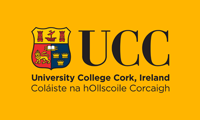News
Could Fibre Be The Ferrari For Your Brain?

Could Fibre Be The Ferrari For Your Brain?
APC Scientists Target Gut Microbes To Reverse The Effects Of Ageing In Middle Age
Middle age is a time of life where various physiological changes occur and can lead to alterations of brain function, including cognitive impairments. However, the mechanisms underpinning such changes are unclear.
New APC research has shown that modifying the gut microbes by diet can lessen inflammation in the brain of middle-aged male mice and may positively influence brain ageing and function.
There is growing evidence that microbes in the gut can play a key role in regulating brain functions, particularly emotional processing and behaviour. Prebiotics are non-digestible fibres that promote the growth of beneficial bacteria in the intestines. Inulin is one such prebiotic found in a wide variety of fruits, vegetables, and herbs, including wheat, onions, bananas, leeks, artichokes, asparagus and chicory.
“We wanted to see whether an inulin enriched diet that can modulate the composition of the microbes in the gut could also improve brain health and wellbeing” says Prof. Cryan, leader of this research. “The community of microbes in the gut changes with ageing. Many studies in ageing focus on very old animals and this may be too late to reverse the age-associated changes. We chose middle age in the hope that we could promote healthy ageing”
“Our research shows that a diet supplemented with prebiotics reversed microglia activation in the middle- aged mouse brain towards young adult levels. Moreover, this reversing effect was observed in a key region of the brain which regulates learning and memory, the hippocampus” says Dr. Marcus Boehme. “Microglia are the major immune cells in the brain and have shown to be a key player in neuropsychological and neurodegenerative conditions. Moreover, microglia play a crucial role in brain plasticity and cognition.”
The new research suggests that prebiotic dietary fibres could be developed as a new strategy to promote healthy ageing by protecting brain function and prevent the adverse effects of age-related neuroinflammation.
Perhaps in the future new dietary regimes rather than fancy cars or motorbikes is what is needed for that midlife crisis.
The study led by Professor John F. Cryan, Professor Ted Dinan, Dr. Harriet Schellekens and Dr. Marcus Boehme is published in the leading journal Molecular Psychiatry. This research was supported by the Science Foundation Ireland Research Centre grant to the APC Microbiome Ireland and the European-wide JPI-HDHL-NutriCog project ‘AMBROSIAC’.
Full reference:
“Mid-Life Microbiota Crises: Middle Age is Associated with Pervasive Neuroimmune Alterations that are Reversed by Targeting the Gut Microbiome” by Marcus Boehme, Marcel van de Wouw, Thomaz F. S. Bastiaanssen, Loreto Olavarria-Ramirez, Katriona Lyons, Fiona Fouhy, Anna V. Golubeva, Gerard M. Moloney, Chiara Minuto, Kiran V. Sandhu, Karen A. Scott, Gerard Clarke, Catherine Stanton, Timothy G. Dinan, Harriet Schellekens, John. F. Cryan. Nature publishing group, in Molecular Psychiatry https://doi.org/10.1038/s41380-019-0425-1


